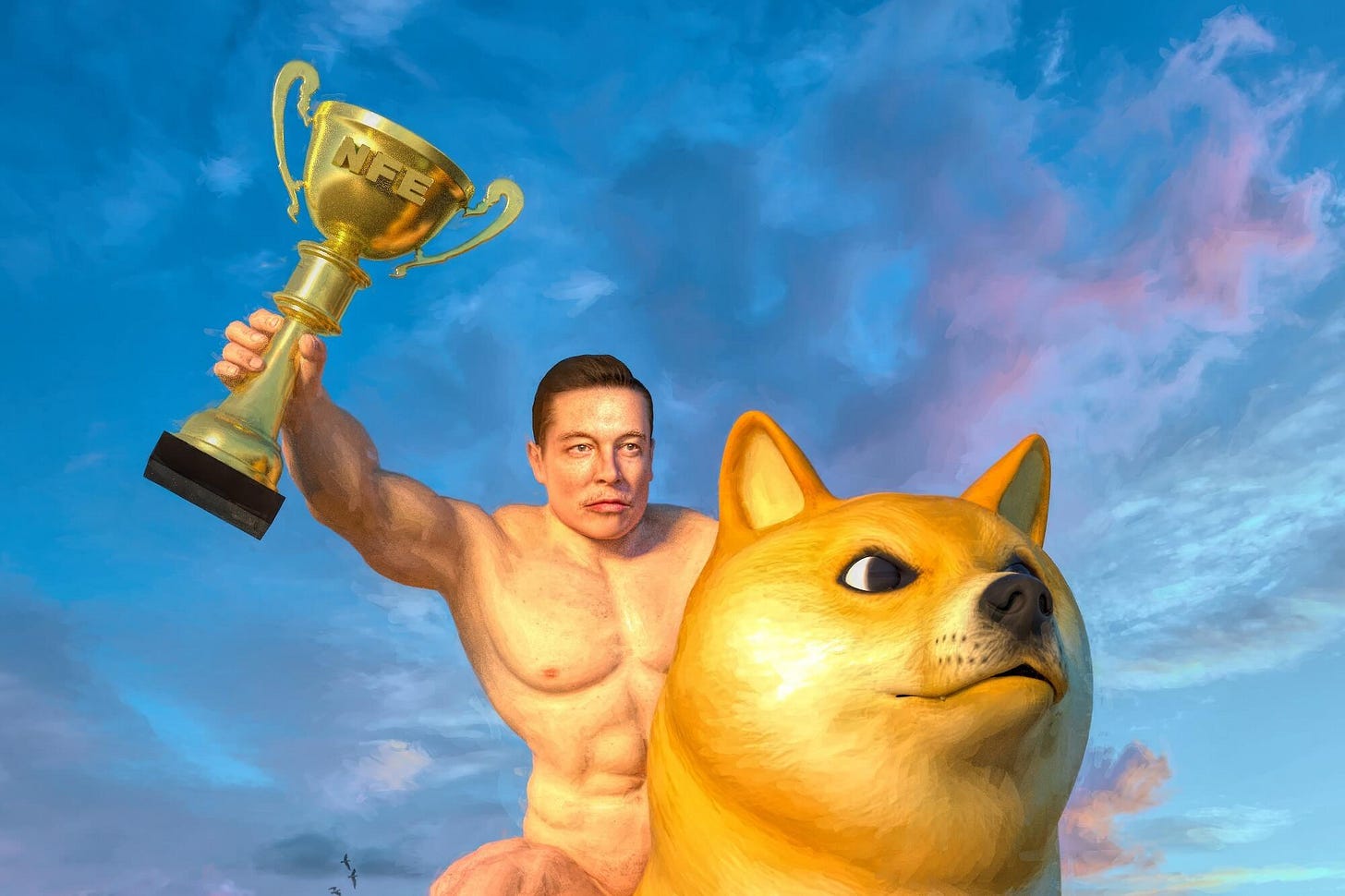Elon Musk (Finally) Takes Over Twitter: What Next For Marketers?
With Musk now fully nestled in Twitter, are we about to enter a free-speech dictatorship?
It’s finally happened, folks!
Perhaps a blue moon appeared over Mars in October but after five months of intense boardroom chess, thinly-disguised threats, and a whole lot of mudslinging, Tesla billionaire owner, and Iron Man wannabe, Elon Musk, has stopped pressing ‘CTRL+Z’ on the deal he initiated back in April and finally completed the purchase of popular social media platform, Twitter, for the princely sum of $44bn price (yeah, that’s more than the GDP of at least 100 countries).
Musk’s Twitter deal remains by far one of the biggest (albeit unusual) takeovers in the history of takeovers. Twitter’s change of ownership has real-world implications— and not just for its 200+ million users.
The advertising industry is set to be severely impacted too!
So, why are advertisers on high alert??
Besides the obvious fear that a centralized media as popular as Twitter is about to be owned by an individual whose personality is largely perceived as volatile, there’s a huge belief in advertising circles that this deal may yet test the tolerance limits of several brands that will be wary of operating in an environment overseen by someone who is a self-proclaimed “free speech absolutist”. For them, the pressing question revolves around what will become of Twitter’s advertising capabilities. For Musk, the restructuring only just began.
Musk has made no secret of his criticism of Twitter's content moderation rules arguing that the company's efforts to promote what it has long called "healthy conversations" are too restrictive. In a statement he made back in April explaining his reason for wanting to buy Twitter, Musk said, “Free speech is the bedrock of a functioning democracy, and Twitter is the digital town square where matters vital to the future of humanity are debated.”
The corollary of Musk’s free speech stance is that discrimination is bound to increase on Twitter. Network Contagion Research Institute—a social media research firm—reported that the use of the N-word spiked 500% on Twitter in the 12 hours after Musk took control.


Sentiments like this will inherently cause many companies and agencies to reconsider their stance due to concerns over content moderation. It’s quite simple - if Twitter can’t show brands that it’s making a concerted effort to keep its ecosystem safe and free from controversial content, many of them will go somewhere that can.
This is especially true for big blue-chip companies and consumer brands that have historically demanded clean and brand-safe environments. The premium that these companies place on brand safety is why other big names in advertising such as Alphabet, Meta, and co. made massive strides to create safe environments for consumers. Therefore the possibility of hateful behavior further increasing on Twitter could very well be reason enough to flee. In fact, such an exodus has already begun - big names such as General Motors and Ford have temporarily paused ads on the bird app while others like the Washington Post, are giving people recommendations to decrease privacy exposure. Hollywood may also join in with Lebron James expressing concerns over hate speech and Shonda Rhimes, the brain behind hit shows like Scandal and Grey’s Anatomy, tweeting that she would be leaving the platform.
This is wildly reminiscent of 2017 when the likes of Volkswagen, Toyota, Heinz, and other brands pulled out of Google advertising after their ads appeared alongside extremist and offensive content except this feels bigger. Pivotal.
It’s Elon’s Twitter and Advertisers Are Just Living in It
While the loosening of regulation may spell the end for consumer-centric brands, others in riskier sectors like financial trading and cryptocurrency will see this as a huge opportunity given Musk’s colorful past with DogeCoin. More likely than not, it is possible we will see crypto advertisers, and other enthusiastic backers of risky assets lean further into Twitter and buy more advertising to promote their products.
That said, Musk does have big plans for advertising in general, and rightly so. For a brand as popular as Twitter, revenue via advertising has been generally poor in recent years when compared to its counterparts and it is now Musk’s fiduciary responsibility to ensure the company is profitable.
To do this, Elon Musk and Twitter understand that they need to keep advertisers happy given that 89% of the revenue generated by the company in 2021 came from ads. This will explain why the billionaire CEO struck a conciliatory tone with advertisers following the takeover completion, asserting that Twitter will “not be the free-for-all hellscape where anything can be said with no consequences”.
However, will advertisers will trust Musk enough to invest their ad spend in the platform during these tough economic times and with no defined direction yet?
That remains to be seen.








